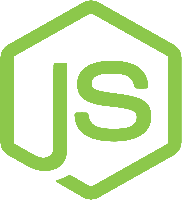Easily integrate Node.js SDK with Google BigQuery using RudderStack
RudderStack’s open source Node.js SDK integration allows you to integrate RudderStack with your undefined to track event data and automatically send it to Google BigQuery. With the RudderStack Node.js SDK integration, you do not have to worry about having to learn, test, implement or deal with changes in a new API and multiple endpoints every time someone asks for a new integration.
Popular ways to use Google BigQuery and RudderStack
Automatic schema creation for behavioral datasets
Simplify your workflow and SQL queries with predefined schemas, automatically created for you in your Google BigQuery warehouse.
Fast Node.js to BigQuery load times
Leverage best in class sync times and load data to Google BigQuery every 30 minutes (or even faster!).
Customize data and loads for BigQuery across multiple databases and schemas
Customize data loads and send data in JSON column format (with custom parameters), without having to manage additional dependencies or npm
Quickly get value out of BigQuery with rich event data
Quickly operationalize a new BigQuery setup or populate your BigQuery client with rich data without having to work directly with the BigQuery API
FAQs
How do you integrate your Node.js app with Google BigQuery?
Is it expensive to integrate Node.js SDK with Google BigQuery?
How long does it take to integrate Node.js SDK with Google BigQuery?
Do more with integration combinations
RudderStack empowers you to work with all of your data sources and destinations inside of a single app


Node.js SDK + Split


AMP Analytics SDK + Google BigQuery


Node.js SDK + Tune


Flutter SDK + Google BigQuery


Node.js SDK + Intercom


ReactNative SDK + Google BigQuery


Node.js SDK + WebEngage


JavaScript SDK + Google BigQuery


Node.js SDK + Customer.io


Nuxt.js + Google BigQuery


Node.js SDK + Google Analytics 360


Hugo + Google BigQuery
